Table of Contents
An intransitive verb is a verb that does not need a direct object to complete its meaning. The action happens but does not transfer to anything else. These verbs often describe actions, conditions, or states. They can be followed by adverbs or prepositional phrases, but they do not take an object.
What Are Intransitive Verbs?
Intransitive verbs are action verbs that do not need a direct object to complete their meaning.
Example Sentences:
He runs.
(the verb runs does not act on any object)
She laughs.
(the verb laughs does not act on any object.)
They sleep.
(the verb sleep does not act on any object.)
Taking a Direct Object
To clarify the concept of direct objects: a direct object is a noun or pronoun that receives the action of the verb. Intransitive verbs do not take a direct object, while transitive verbs do.
Examples:
- She kicked the ball.
- He read the book
- They built a sandcastle
Identification of Intransitive Verbs
Identifying intransitive verbs is straightforward. You can look for verbs that do not have a direct object following them. A direct object answers the questions “what?” or “whom?” about the verb.
If the verb can stand alone and convey a complete idea without needing an object, it is likely intransitive.
Example:
- Intransitive: The baby cried.
- Transitive: She kicked the ball.
How to Use Intransitive Verbs
Intransitive verbs can be used in various ways in a sentence. While they may be accompanied by adverbs or prepositional phrases to provide more context, they will never require a direct object.
Examples:
- She sings beautifully.
- They ran through the park.
- The dog barked loudly.
Transitive Verbs vs. Intransitive Verbs
Transitive Verbs:
Transitive verbs require a direct object to complete their meaning. They transfer the action from the subject to the object.
Examples:
- She wrote a letter.
- He played the guitar.
Intransitive Verbs:
Intransitive verbs do not require an object. The action is complete without needing to act upon anything.
Examples:
- The baby cried.
- The train arrived.
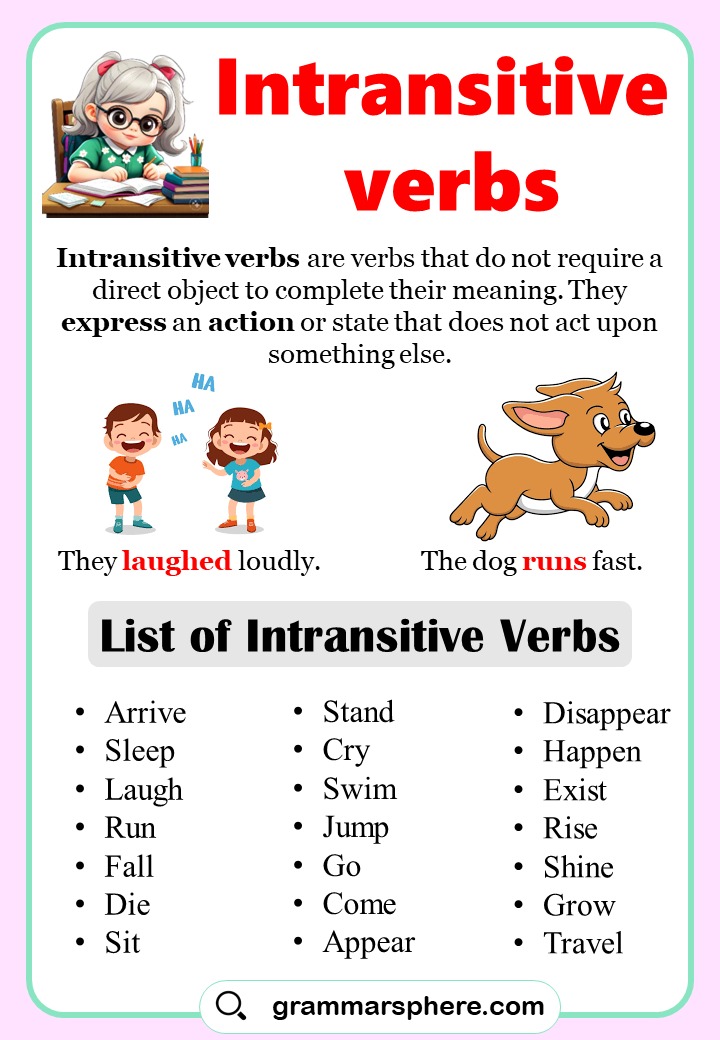
Rules for Using Intransitive Verbs
1. No Direct Object:
Intransitive verbs do not have a direct object.
- Correct: She sleeps. (No object required)
- Incorrect: She sleeps the whole day. (Misuse of direct object)
2. Followed by Modifiers:
They may be followed by adverbs or prepositional phrases but not direct objects.
He arrived early. (The adverb early modifies the verb.)
3. Cannot Be Passive:
Intransitive verbs do not have a passive form.
- He sneezed. cannot become Was sneezed by him.
4. Describing Actions or States:
Intransitive verbs often describe actions or states without involving objects.
- The sun shines. (The action is clear without needing an object.)
Common Mistakes with Intransitive Verb
Many learners confuse intransitive verbs with transitive verbs, leading to errors. Here are some common mistakes to avoid:
1. Confusing with Transitive Verbs:
- Incorrect: She danced the waltz. (Needs a direct object)
- Correct: She danced. (The verb stands alone.)
2. Using Direct Objects:
- Incorrect: He slept the whole day. (Misuse of direct object)
- Correct: He slept. (No direct object required.)
3. Neglecting Subject-Verb Agreement:
- Incorrect: The group were happy.
- Correct: The group was happy.
4. Overcomplicating Sentences:
- Incorrect: He ran very fast on the track. (Unnecessary adverb.)
- Correct: He ran on the track. (Clear and concise.)
Example Sentences with Intransitive Verbs
- The baby cried loudly.
- They arrived early for the meeting.
- The dog barked at the stranger.
- She laughed at the funny joke.
- He sneezed unexpectedly.
- The flowers bloomed in spring.
- She swam in the ocean.
- They waited patiently for their turn.
- The kids played outside until dark.
- He sat quietly in the corner.
Intransitive Verbs Cannot Be Used in Passive Voice
Intransitive verbs do not have direct objects, meaning there is nothing to turn into the subject of a passive sentence. The action is complete without affecting another object, making them incompatible with passive voice.
1. Sleeping
✅ He slept peacefully.
❌ Was slept peacefully by him.
2. Laughing
✅ They laughed at the joke.
❌ Was laughed by them at the joke.
3. Crying
✅ She cried during the movie.
❌ Was cried during the movie by her.
4. Barking
✅ The dog barked loudly.
❌ Was barked loudly by the dog.
5. Dancing
✅ He danced gracefully.
❌ Was danced gracefully by him.
6. Blooming
✅ The flowers bloomed in spring.
❌ Were bloomed in spring by the flowers.
7. Swimming
✅ She swam in the ocean.
❌ Was swum in the ocean by her.
8. Waiting
✅ They waited patiently for their turn.
❌ Were waited for their turn by them.
9. Sleeping Through the Night
✅ The baby slept through the night.
❌ Was slept through the night by the baby.
10. Sneezing
✅ He sneezed suddenly.
❌ Was sneezed suddenly by him.
Verbs That Can Be Transitive or Intransitive
| Verb | Transitive Usage | Intransitive Usage |
|---|---|---|
| Run | She ran a marathon. | He ran yesterday. |
| Play | They played a game. | The children played for hours. |
| Eat | She ate an apple. | He ate quickly. |
| Sing | She sang a beautiful song. | He sang loudly. |
| Walk | She walked the dog. | He walked for an hour. |
| Change | He changed the tire. | She changed overnight. |
| Look | She looked the word up. | He looked around. |
| Dance | They danced the waltz. | She danced gracefully. |
| Grow | They grew vegetables. | The plant grew quickly. |
| Drive | He drove his car. | She drove carefully. |
| Help | She helped her friend. | He helped. |
| Stop | He stopped the car. | They stopped suddenly. |
| Fall | The tree fell the branches. | She fell. |
| Call | I called her yesterday. | He called out. |
| Bark | The dog barked a warning. | The dog barked loudly. |
FAQS
What is intransitive verb with examples?
Examples:
She sleeps peacefully.
They arrived late.
He runs every morning.
What is an intransitive and transitive verb?
A transitive verb requires a direct object to complete its meaning, answering “what” or “whom.” Example: She wrote a letter (letter is the object).
An intransitive verb does not need a direct object; the action is complete on its own. Example: He slept peacefully (no object needed).
Some verbs, like run, play, and eat, can be both transitive and intransitive, depending on the sentence.
How do you identify an intransitive?
To identify an intransitive verb, check if the verb does not have a direct object answering “what” or “whom.” If the action is complete on its own, it’s intransitive.
Example: She slept peacefully. (No object)
If you can’t ask “what?” or “whom?” after the verb, it’s intransitive.
You May Also Like

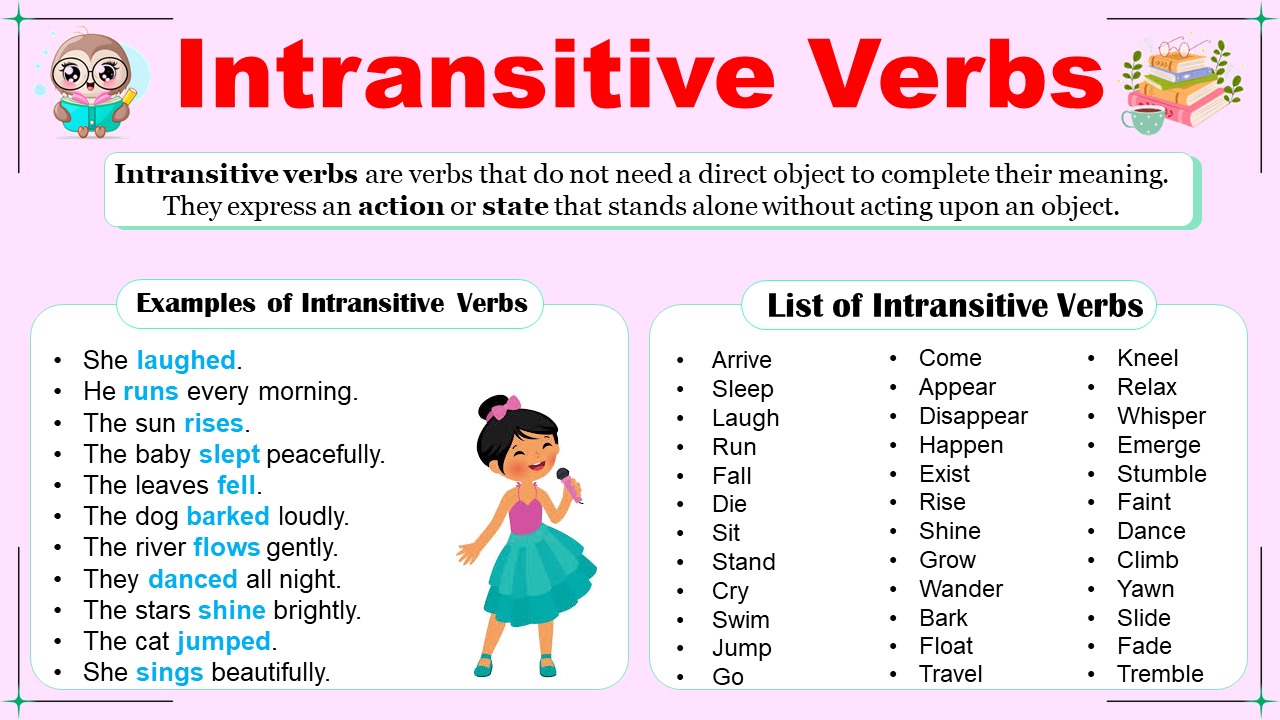
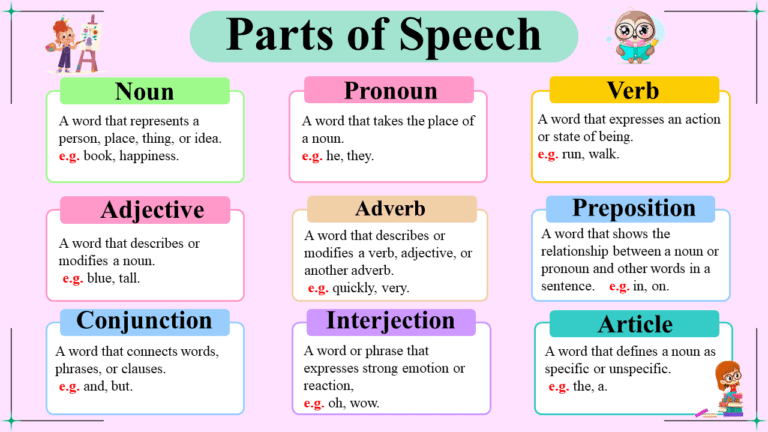
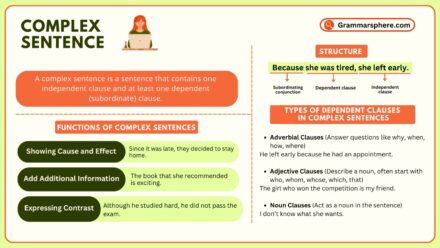
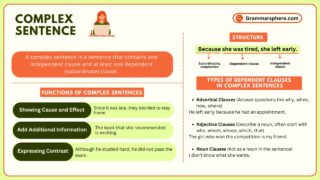
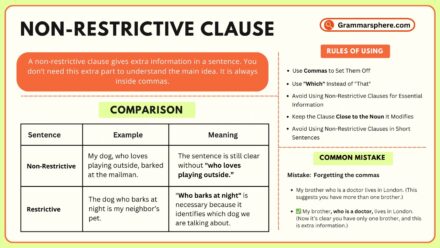
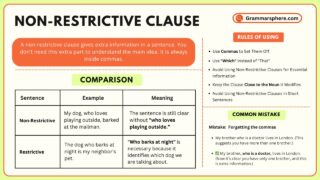
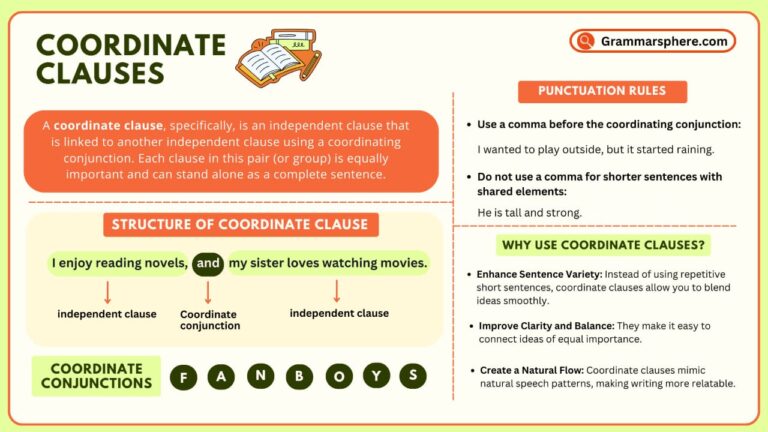

Leave a Comment